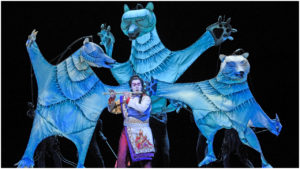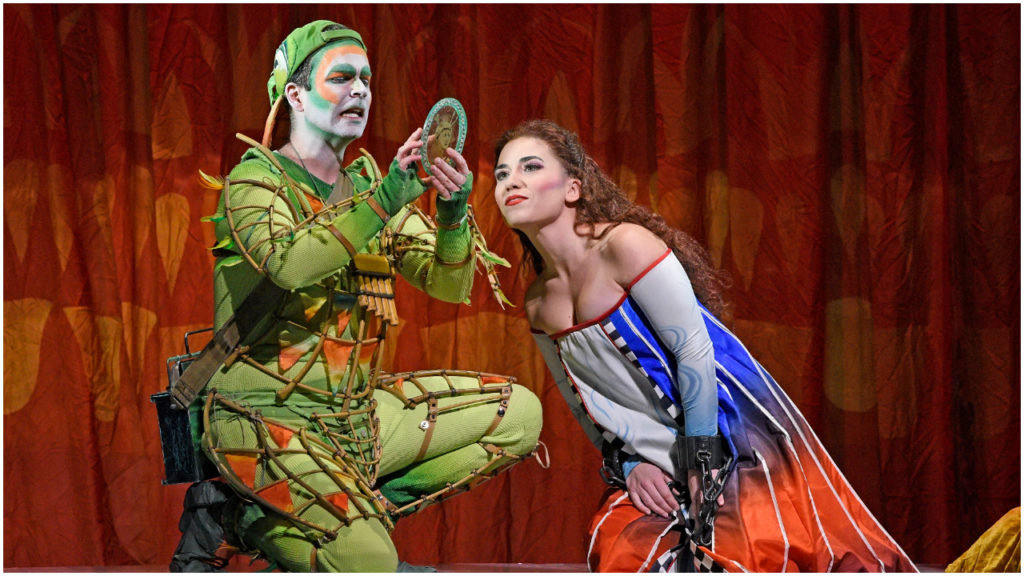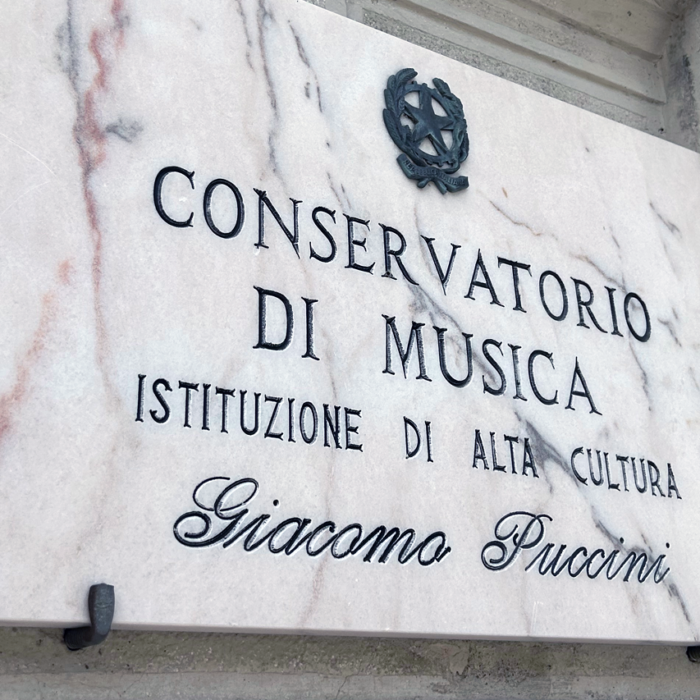
Metropolitan Opera 2019-20 Review: The Magic Flute
Artists Make for Magical Holiday Performance
By Logan MartellOn Dec. 15, 2019, The Metropolitan Opera raised the curtain on this season’s run of Mozart’s “The Magic Flute.” Julie Taymor’s family-friendly production continues to be a visual and musical delight that, while abridged, makes for a strong concentration of the work. Under the baton of Lothar Koenigs, Sunday’s cast of artists was comprised of a fine mix of new and familiar voices, lending their respective strengths to the afternoon’s performance.
Harmonious Humans
In the role of Tamino, David Portillo faithfully portrayed the prince through the journey which marks his transition into adulthood. His fearful opening encounter with the serpent, as well as the posturing he used in his introduction to Papageno, soon established Tamino’s youthful, slightly pompous, character. This latter quality quickly melted away with Portillo’s affectionate rendition of his Act one aria “Dies Bildniss ist bezanbernd schon,” where his warm vocal colors sweetened the musical texture driven by the basses and cellos. When trying to enter Sarastro’s temple, Portillo’s bolder stances returned briefly, but as the reality of the situation became clear, his love was wonderfully affirmed with his increasingly-delicate phrase “I need your help to find Pamina.” After his vow of silence is lifted and he is rejoined with Pamina, Portillo’s trailing phrases made for resolute and romantic harmonies with Joelle Harvey as they readied to face the trials of fire and water.
Making her Metropolitan Opera debut in the role of Pamina, Joelle Harvey took the character to magical heights with her captivating vocal and dramatic qualities. After seizing her fiery, defiant introduction, her charming demeanor is soon confirmed by Papageno as he compares her features to her portrait. Before the Queen of the Night, her soft pleading gave way to stronger conflicted tones as she struggled to accept her duty to kill Sarastro. Her Act two aria “ach, ich fuhls, es ist verschwunden,” saw Harvey make great use of poignant vocal leaps and forlorn pianissimos which drew applause before the orchestra’s cadence could finish the number. After rejoining Tamino, their handling of the trials came with a lighter, almost upbeat feeling that was filled with a loving certainty.

As Papageno, Joshua Hopkins brought an abundance of laughter through his time onstage. His introductory aria, “Der Vogelfanger bin ich ja” carried a bright and firm energy which lasted through most of the strophic number, slowing with a relishing draw at the thought of one day finding a mate. This vocal brightness lent itself to his taking of the credit for killing the serpent, with a humorous, resounding “Strangled it!” Hawkins’ lines were often delivered with skillful timing, and he showed great control of his support as through his many dynamic actions. This energy also helped with his interactions with much of the onstage puppetry, such as when he and Tamino receive food from Sarastro, as Papageno has his finger pinched by a lobster and tries to pull spaghetti from a floating bowl. These qualities nicely came together for his Act two number “Ein madchen oder Weibchen, as his upbeat, longing sentiments were joined by his dance moves, including a brief use of the “Floss” dance from the popular children’s game “Fortnite.”
Reprising her role as Papagena, Ashley Emerson exuded a bubbly charm throughout her appearances, even past her elderly disguise. Her cute, excited mumbling often accompanied her motions, such as when she carefully sat herself down three times while counting along. After her youthful reveal is cut short, Emerson returned for their adorable Act two duet.
Celestial Duo
Also returning for this season’s cast were the heavenly pairing of Kathryn Lewek and Morris Robinson as Queen of the Night and Sarastro, respectively. Lewek’s expertise was shown early on in her Act one aria “O zitt’re nicht, mein” as her false agony in losing her daughter, full of pleading vocal leaps, gave way to a measured bearing as she charged the unwitting Tamino to rescue her. Her Act two aria “Der Holle Rache kocht in meinem Herzen,” remains an electric showcase of vocal technique; her sharp gestures and piercing high ‘F’s made for a ferocious rendition of this famous number. Lewek drew great applause after the first section of coloratura, shortly before her extended run of triplet figures. Her evocative portrayal makes a strong case for Lewek as one of the foremost interpreters of the role.
In the role of Sarastro, Morris Robinson’s strong presence was only outdone by his utterly rich vocality. While this was established early into his opening lines, as heard from his deep, sustained tones, it was fleshed out with a deep, faithful serenity for his aria “O Isis und Osiris.” While he often carried an air of imperturbability, his Sarastro was capable of a harder, authoritative fire, as heard when he banished Monostatos. This quality cooled not long after as he reassured Pamina with his aria “In diesen hell’gen Hallen.”
The Tree Spirits were played by David Katzman, Eliot Flowers, and N. Casey Schopflocher, whose appearances consisted of a light, distanced wisdom that they dealt out as needed, at times rearranging the order of their lineup to add some motion to their visits while showing their unity. A contrasting sort of unity came from the Three Ladies, played by Gabriella Reyes, Megan Esther Grey, and Renee Tatum. While sharing a mission, their early squabble over the sleeping Tamino remained a source of humor.
Taymor’s production of “The Magic Flute” shows that it still has plenty to dazzle audiences with as the cast of artists bared their talents below the panoply of color and symbolism that comprises the set and stage. While not usually thought of as a festive work, the Metropolitan Opera proves able to draw magic from the most unlikely of places, making for a splendid holiday show for families.



